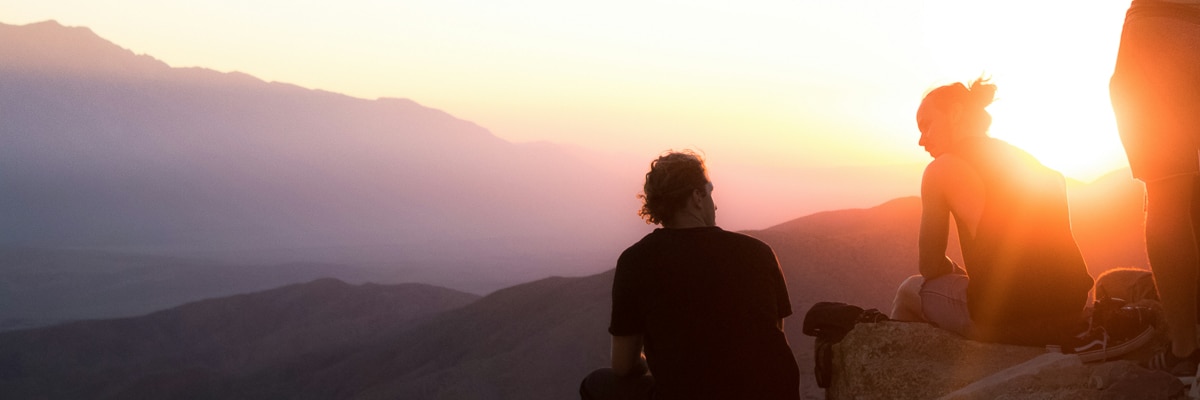
Rabbi Sharon Brous draws on her Jewish tradition to name the dignity of every human being.
[A] Rabbinic text … from the ninth century declares that every person is accompanied, at all times, by a procession of angels crying out, “Make way, for an image of the Holy One is approaching!” Every person, like royalty. And yet, again and again, the image of the Holy One is controlled and contained, humiliated and degraded, incarcerated and incapacitated, shot and killed before our very eyes. How do we keep missing all those angels, with their trumpets and proclamations, desperate to rouse us to the dignity of every human being?
The call to awaken to the image of God, to the dignity of every person, has been the driving force of my religious life, the very heart of my faith…. What would it mean to build a society in which every person is treated as an image of the Divine? How would this affect our relationships with our neighbors, our coworkers, the stranger lying beneath the stained blankets and trash outside Starbucks? Wouldn’t it compel us to recast the cultures of our schools, organizations, and faith communities? How would it impact health care, education, public policy?… How would it transform law enforcement and criminal justice systems—where today judgment is too often rendered based on whether a person is Black or white, rich or poor, rather than guilty or innocent?
Brous shares a story illustrating how nearness and neighborliness lead to loving action:
My friend goes to a church of Caribbean immigrants in downtown Los Angeles. One day his pastor preached: Say you’re walking in downtown LA, or Chicago, or New York. A naked man runs in front of you on the sidewalk, screaming and cursing. What do you do? Most of us, of course, briskly cross the street. That guy’s unwell, we think.
But say you live in a tiny town of maybe fifty households. You’re walking around one day when a naked man runs in front of you on the sidewalk, screaming and cursing. And because you live in a tiny town, you know this man … it’s Henry. Last week, you just happen to know, there was a terrible tragedy, and fire burned Henry’s house to the ground, leaving him with nothing. What do you do?
“Henry,” you say, “come with me, friend. You need a warm meal and a safe place to stay.”
What does it take to shift our collective consciousness from stranger who is unwell to Henry, my neighbor, created in God’s own image?…
The challenge is to imagine a fundamentally different reality: a world in which we recognize and fight for each other’s dignity. A world in which we … train our hearts to see even the people others might render invisible. A world in which we recognize that we—images of the Divine—are all bound up in the bond of life with one another. And our hardest and holiest work is not to look away.
Reference:
Sharon Brous, The Amen Effect: Ancient Wisdom to Mend Our Broken Hearts and World (New York: Avery, 2024), 53–54, 58–59, 61.
Image credit and inspiration: Cynthia Magana, untitled (detail), 2016, photo, Unsplash. Click here to enlarge image. In order to care for each other, we must also take care of ourselves.
Story from Our Community:
I am deeply grateful for the Daily Meditations and this community which continues to deepen my spirituality, shedding the dualistic God of my upbringing. I am coming to see each moment as a portal to Reality, an opportunity to transcend my small self and choose Love, which is who we are.
—Maryann R.




